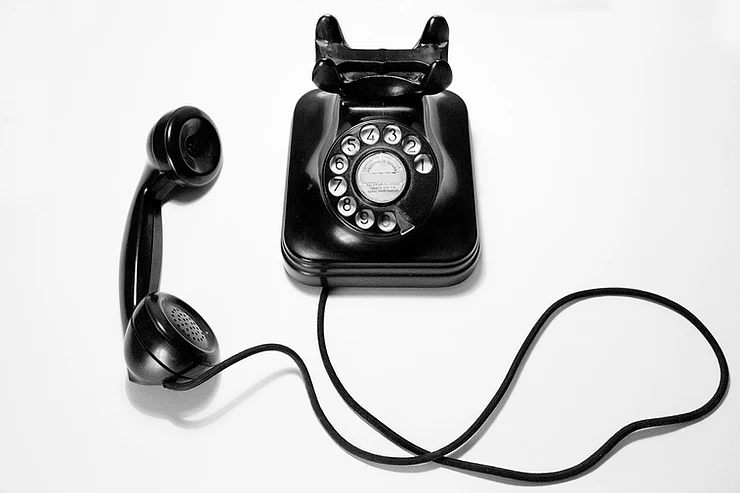Legal and Brand Risks Aren’t Worth Using Auto-Dialers

Using an auto dialer to follow up on past-due receivables may seem tempting. That’s especially true for a high-volume business and industries such as healthcare. After all, in theory, the machine helps you reach a larger number of people in a shorter period of time. That can reduce the number of human hours you need to spend on account collections.
But that theory fails on two counts: the risk of brand damage from the use of the auto dialer and the possibility of running afoul of consumer protection laws. A sounder alternative is to use a strategic, targeted collection process that has strong results. This involves live agents, who not only deal with the current account issue but help to resolve underlying problems which delay payment and frustrate the customer.
Fines and Lawsuits for Unsolicited Contact
Businesses may be caught unaware of the potential fines for using an auto dialer to get in touch with customers. Under the Telephone Consumer Protection Act (TCPA), those fines can run $500-$1,500 per call if you auto-dial a cell phone without your customer’s express written permission. This is the reality when two-thirds of Americans can only be reached by cell phone. As an ethical and cost-conscious business owner, you may be taken aback by an ugly and potentially expensive TCPA complaint or class action lawsuit.
Anyone who thinks legal repercussions are rare might be surprised. In 2017, plaintiff in the case of Demuth vs. Navient Solutions, LLC received a $300,000 judgment against Navient for 200 calls over about $15,000 in unpaid student loan debt — $1,500 per call. In February 2019, a proposed $2.5 million class action settlement against Navient received final approval for allegedly calling third-party cell phones using an automated telephone dialing system (ATDS) without obtaining prior express consent. Although Navient “vigorously” denies all claims asserted in the action, the complaint also alleges that consumers were called even when they requested not to be.
Defining Auto Dialer: Courts Wrestle With the Question
Using automated calls is especially challenging because courts have different opinions about what constitutes an auto dialer under the TCPA. In September 2018, a New Jersey court ruled that a system did not meet the auto dialer definition because its list of numbers was not randomly — or sequentially — generated. But that same month, a California court found an auto dialer was any system that stores and dials numbers.
It’s because of that latter case, Marks v. Crunch, that the issue may be resolved by the US Supreme Court. The defendant, in that case, has asked the highest court to review the issue. It’s yet to be determined if they will take up the case, and in the meantime, the FCC has asked for comment in advance of their further guidance on the TCPA auto dialer definition. This is just the latest event in a long history of FCC activity targeting the use of auto dialers.
The law will eventually resolve itself, and perhaps allow auto dialers to exist within a consumer protection framework. That may include reliance on an “existing business relationship.” That’s despite the fact that, in 2012, the FCC cracked down on the use of an “existing business relationship” to justify telemarketing calls. But in the case of accounts collection, businesses may be able to use automated calling without fear of legal repercussions, as long as they are respectful when using the technology.
Better Options Other Than Auto-Dialers
Because of the current legal gray areas, auto dialers are a risky option for business clients. They are also a recipe for disaster when it comes to brand protection. In some industries, a high level of customer service is almost mandatory.
Healthcare is one example: because of the potential for billing errors and the need to explain line items to clients, blasting them with an auto dialer is confusing. It creates conflict and does harm to the brand.
A more successful operation takes a customer service approach. This starts with asking your customer upfront for their preferred method of contact and getting that preference in writing. This satisfies the legal requirement of “express written permission.” It also demonstrates respect for the customer, who may want a different channel of contact.
By taking this customer service approach, the brand reputation is protected. Agents that engage in direct communication with clients use the personal touch. This leads to a strong rate of debt recovery. The added time taken by agents to address the root cause of the unpaid debt leads to high ROI.
An auto dialer encapsulates the opposite of this approach: it is impersonal and treats customers as “just a number.” Because of its negative connotations, the auto dialer is also a poor reflection on brands who want customer needs to be their central focus.
Partner With a Trusted Receivables Management Solution
Speak with Tavelli Co. to learn more about your options for successful account recovery. We’ll help you partner with the right team to protect your brand and your bottom line.
Tavelli Co., Inc. has over 40 years of unparalleled experience in the debt collection and receivables management industry. Our mission is to achieve the right balance between getting clients paid and being empathetic to debtor circumstances, through implementing innovative practices, hiring experienced people, and improving business decisions through analytics. We provide peace of mind to all involved by collecting money with no complaints. Tavelli Co., Inc. takes the time to carefully listen to your customers and share their feedback with you through meaningful data and transparent communication, so you have access to the information you need to make quality decisions and improve your processes in the future. Contact us today and let the debt collection experts at Tavelli Co., Inc. help you set your business up for success.
IMPORTANT: Information provided by Tavelli Co., Inc., any employees of Tavelli Co., Inc., or its subsidiaries is not intended as legal advice and may not be used as legal advice. It is not intended to be a full and exhaustive explanation of the law in any area, nor should it be used to replace the advice of your own legal counsel.




